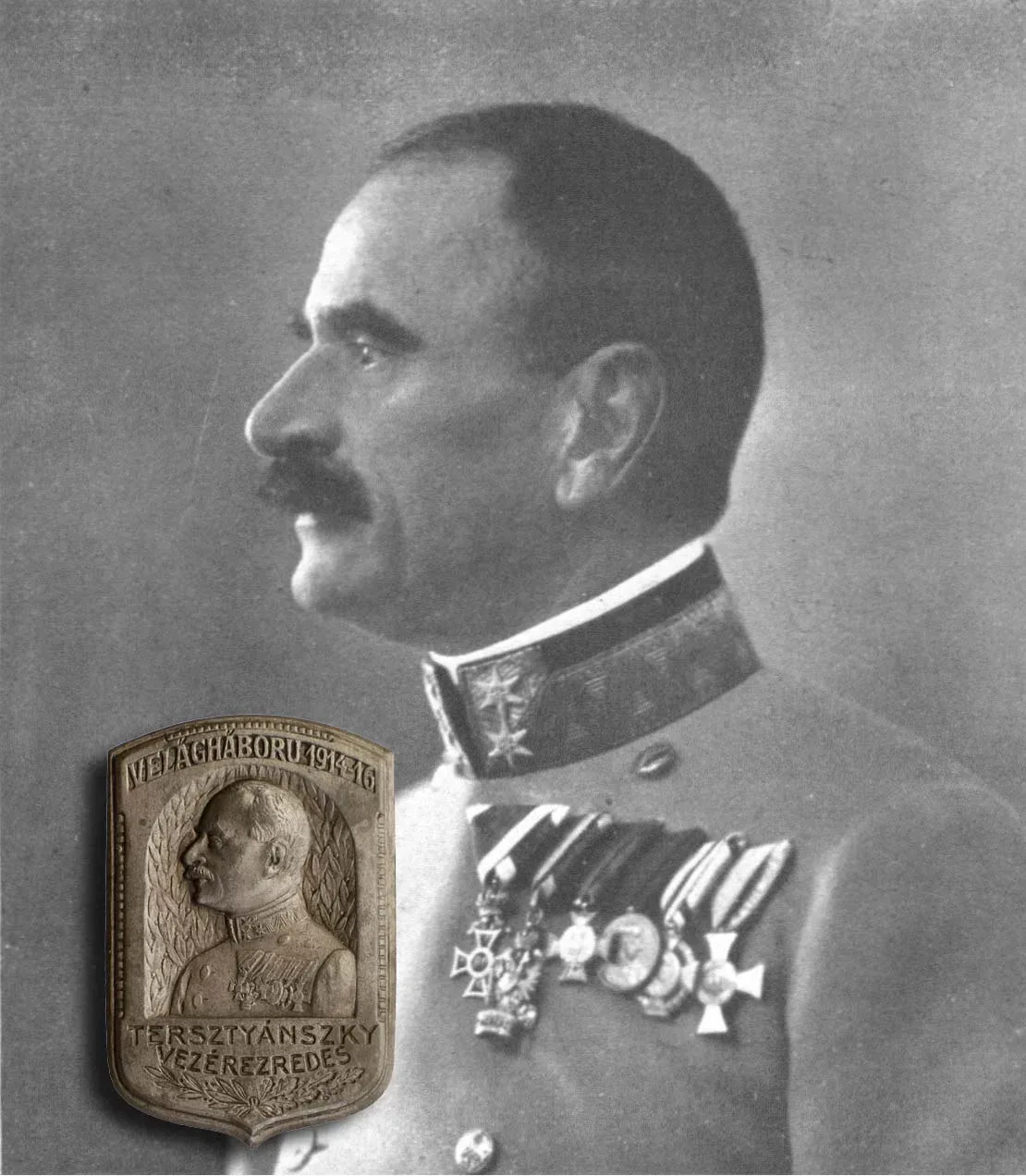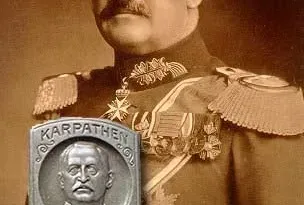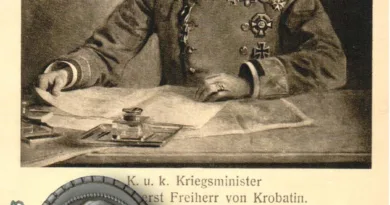Tersztyánszky, colonel general
Károly Tersztyánszky was born in 1854 in the village of Szakolca, in an old Hungarian noble family. He attended military schools in the 1870s. He studied first in Sankt Pölten and then at the Maria Theresia Military Academy in Wiener Neustadt. He was promoted to lieutenant in 1877. He then graduated from the General Staff Academy in Vienna and was assigned to the general staff in 1882. Later, he was a division and corps staff officer. In 1897, he became the commander of the 1st dragoon regiment, and from 1898 he held the rank of colonel. Brigade commander from 1903, major general from 1904. According to the reviews, he always received excellent ratings during his military career, yet he progressed relatively slowly with promotions and positions. This is explained by his hot-headedness and repeated conflicts within the armed force. In 1907, he became the commander of the 2nd Cavalry Division in Pozsony. In 1910, he was awarded the Knight’s Cross of the Order of Leopold. In 1912, he was appointed commander of the IV Budapest corps.
During the first period of the Great War, he was a corps commander, assigned to the 2nd Army. His corps fought first in Serbia, then in Galicia from September. The IV. and VII. corps carried out a successful offensive operation in the Carpathians and around Lemberg in October 1914. For this result, he was awarded the Grand Cross of the Order of the Iron Crown. In the winter of 1914, he led the defense of the Austro-Hungarian troops pushed back to the Carpathians. From May 1915, he was appointed commander of the Balkan Streitkräfte. During the preparations for the second Austro-Hungarian attack on Serbia, he came into conflict with the local political leaders. He was replaced at the request of Prime Minister Tisza. His place was taken by Hermann Kövess, who then successfully led the Balkan offensive.

In May 1916, he was promoted to colonel-general. In June, he took over the command of the 4th Army, which was on the verge of disintegration in the Brusilov Offensive, from Archduke József Ferdinand. However, the weakened 4th Army could not achieve success even with the new commander, and suffered further heavy losses. By September 1916, it was possible to replenish the army and stabilize its position at the front. His achievements on the battlefield protected him from being replaced for a while. This time he came into conflict with the German ally, above all with Colonel-General von Linsingen, the commander of the German Southern Army. In March 1917, he was therefore appointed commander of the 3rd Army, which was slightly further away. In this position, he made serious command mistakes during the Kerensky offensive. Because of this, he was deposed on July 12 and Colonel-General Kritek was appointed in his place.
After that, he was no longer assigned to a battlefield assignment. He was retired on December 1, 1918. He died in Vienna in 1921.




